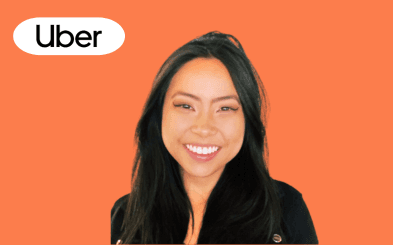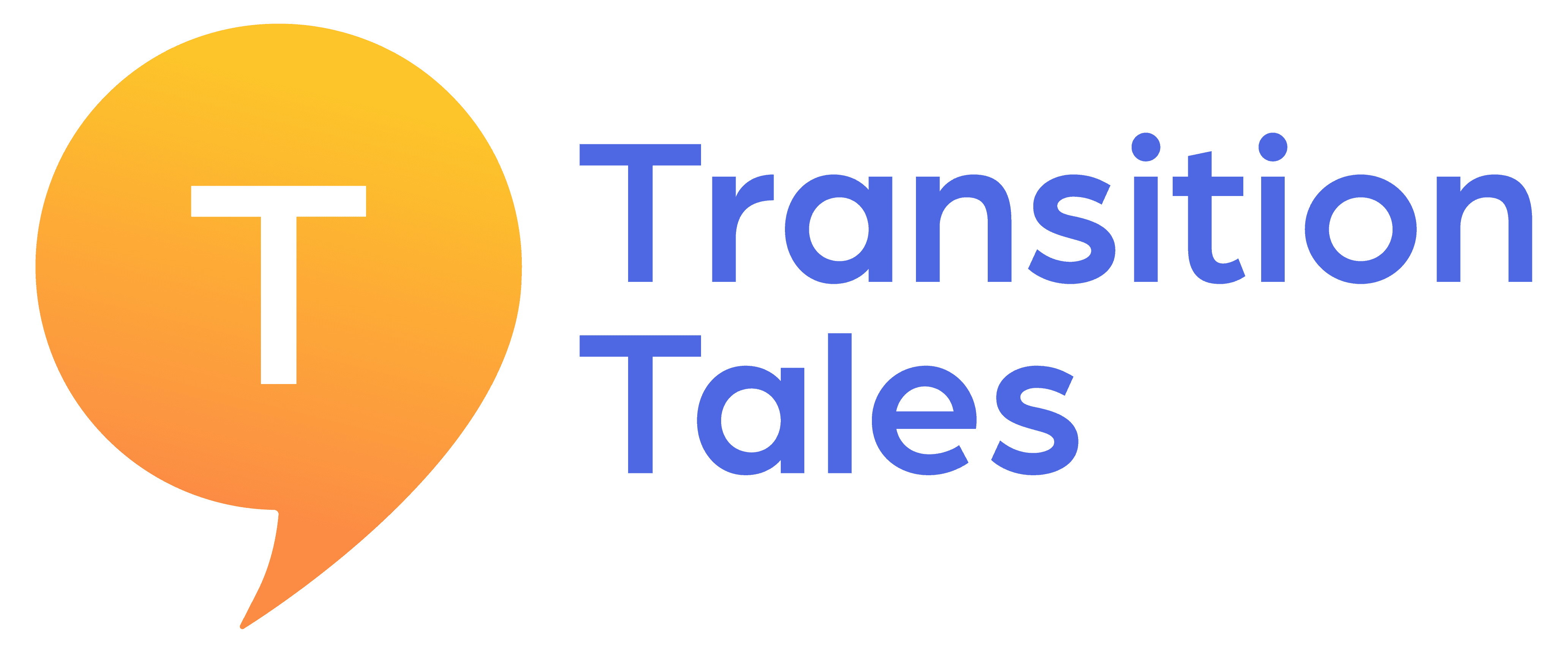Profile
How Amanda Established a Thriving Tech Career After Bombing her First Interview
About
Challenges
Resources

Amanda Hoac
Product Manager at Uber
Transition Summary
Marketing intern @ Sincerely
Marketing lead @ Sincerely
Marketing Technology Manager @ Uber
Product @ Uber
Tell us about your career journey into tech!
Initially, I thought I was going to dental school. However, as the time came closer after I graduated undergrad, I realized it wasn't the right path for me. So, I changed my mind and decided to explore other opportunities.
In the beginning, I applied for almost every position I could find on Craigslist. From Executive Assistant roles and Non-profit Admin positions to Yelp sales jobs, I tried them all. After facing nearly 15 rejections, I finally landed a marketing internship at a startup called Sincerely which was a startup focused on making the world more thoughtful – we had an umbrella of gifting apps such as Postagram, Ink Cards, and Sesame Gifts).
When I interviewed for the internship, I had no prior knowledge of marketing or tech. However, the team and the hiring manager were looking for someone with curiosity, passion, and a strong willingness to learn. They saw those qualities in me.
To be honest, I completely bombed the marketing interview. At the end, the hiring manager asked if I had any questions, and I nervously asked, "Why am I here?" He replied, "You are here because your initial phone screen answers were sincere, unique, and passionate. I especially enjoyed your quote about not being afraid to fail. But you need to leverage resources like Quora or other tools to help better prepare for this interview." It was the first time, after 15 rejections, that someone gave me constructive feedback, and I hadn't realized how much I needed to hear it.
I went home feeling defeated, but something inside me realized how much I wanted that job. So, I wrote a heartfelt seven-page essay, addressing all the questions I had missed during the interview, and sent it to the hiring manager, asking for a second chance. The hiring manager gave me both bad news and good news. The bad news was that they had filled the two intern positions he was hiring for, but the good news was they made room for a third intern—and that was for me.
Fast forward to today, that experience still resonates with me. Each time I get promoted, like my journey through Uber, I make it a point to reach out to that same hiring manager to express my gratitude for giving me that chance.
What was your experience like at your first startup job?
The company was a 20-person startup, and because I was their only marketing intern to full-time hire at the time, they weren't quite sure where to place me. For most of my tenure, I actually reported to the director of engineering and sat with the engineering team. This meant I joined all the engineering standups and participated in sprint planning, which was a unique experience for someone in a marketing role.
I stayed at Sincerely for five years and wore many different hats. As an intern, I managed all of the social media platforms, handled paid channels, and even helped out with customer service. I then created the company's CRM strategy from scratch. Because we were so lean, we had to find ways to improve marketing automation and efficiency, so we leveraged third-party tools like Mixpanel, Braze, and Marketo. Eventually, I focused on becoming a product owner for multiple features within our app, experimenting with our onboarding flow and setting up our API partners for success.
I grew passionate about tech and understanding the needs of these products and platforms. When I expressed my interest in moving to a larger tech company to my director of engineering, he encouraged me, saying, "You already know how all of these tech products work. All you have to do is put your name out there. You have four to five years of experience, and I will help you get there.
My engineering director truly supported me, teaching me SQL, helping with mock interviews, and guiding me through various coding methods. Thanks to his mentorship, I quickly grasped the entire product life cycle, which was invaluable as I transitioned into larger tech roles.
How did you move from Marketing to Product Management?
I always worked closely with engineers. Whether it was growth experimentation within our gifting apps or setting up CRM marketing integrations, I was constantly collaborating with iOS, Android, full stack, and backend engineers.
I always felt like I was in the right environment to be a PM, but I didn't realize I was already doing product management alongside marketing until I became the web experimentation lead at Uber. My manager pointed out, "Your job scope hasn't changed. You already work with data science, ops, and engineering. Why don't you just interview for a PM role and we can transition our whole team into product management?"
How did you prepare for the Uber PM interview?
So I probably prepped for about four to five months in order to prepare myself for this interview.
At the time, I was in a web experimentation role, collaborating closely with engineers, ops, and data scientists, essentially engaging in the product life cycle. However, my focus was primarily on growth marketing metrics, not the entire user lifecycle.
Preparing for the PM interview was challenging due to the various PM segments: core PMs, growth PMs, platform PMs, technical PMs, and generalist PMs. I had to understand the nuances of each role and prepare myself to transition into a growth PM. To do this, I sought advice from people in the industry to gain a comprehensive understanding of how to break into this space.
Fortunately, Uber had a mentorship program (which unfortunately no longer exists). I leveraged this program to gain extensive product mentorship. I met with different PMs from various organizations every week to jam on PRDs, understand their user thought process, and conduct mock interviews.
And I think every person needs to have that downtime to do all the reading really in depth in the PRDs. If you encounter PRDs with end requirements and you're not familiar with coding or the technical side, reaching out to engineering managers can be incredibly helpful. They can walk you through their thought process behind an ERD.
The PM interview is a very strenuous process where you have to quickly come up with user needs, key success metrics, and then how you would build user audiences. While no PM does all of this in a single day, the interview is designed to assess and sniff out how you think out loud, tell a story from beginning to end, and solve problems. They want to test your adaptability and problem-solving skills.
That was the hardest part, getting the right mindset. So even within an internal transfer, I needed to do a lot of practice rounds and mock interviews.
Sign up for our newsletter
Discover inspiring stories, valuable resources, and advice to navigate your
career transition with people who are two steps ahead of you.
How did you ask for mentorship and help?
Actually just from the mentorship barrier alone, what I realized is that not many people say no when you ask for mentorship.
Throughout my time at Uber, I reached out to those I looked up to and said, “hey I really want to break into this space, I was hoping I could set a monthly sync with you and ask for help or just some advice on how to become a better PM.”
Everyone was really nice and willing, which I was very shocked by. So that's why I'm always very willing to help others as well.
Another great takeaway is that everyone comes into product management from different, often unconventional paths.
Some come from consulting backgrounds, excelling in storytelling and strategy building. Others, like former engineers, bring deep technical knowledge and understand the feasibility of building products.
Before I became a PM, I often doubted myself thinking “I’m not a product manager.” However, my mentors emphasized that it's just a title barrier. This made me realize that we are all working towards the same goal—focusing on what's best for the customer—each bringing a unique set of strengths to the table.
What are your favorite resources for aspiring PMs?
I believe every aspiring PM has their go-to resources, often referred to as the “PM bibles”. Two of the most popular ones are:
Decode and Conquer by Lewis C. Lin
Cracking the PM Interview by Gayle Laakmann McDowell
Additionally, Hooked by Nir Eyal is fantastic because it delves into what makes products sticky and how to create experiences that make users come back.
For other resources, Exponent was really good. At the time I interviewed, Clubhouse was really big, so finding spaces online to ask for mock interviews and feedback is important.
It's important to immerse yourself in the PM language, read the recommended books, and get hands-on experience.
One of the most critical elements is mentorship. Getting feedback from a variety of people—your engineering manager, potential colleagues, and PM mentors—is invaluable. Doing your user research and seeking feedback helps you grow.
Mentorship is essential, especially because many new product managers experience imposter syndrome. But a good support system reminds you that we're all striving to build something great for the user and you don't have to do it alone.
Transition Tales
